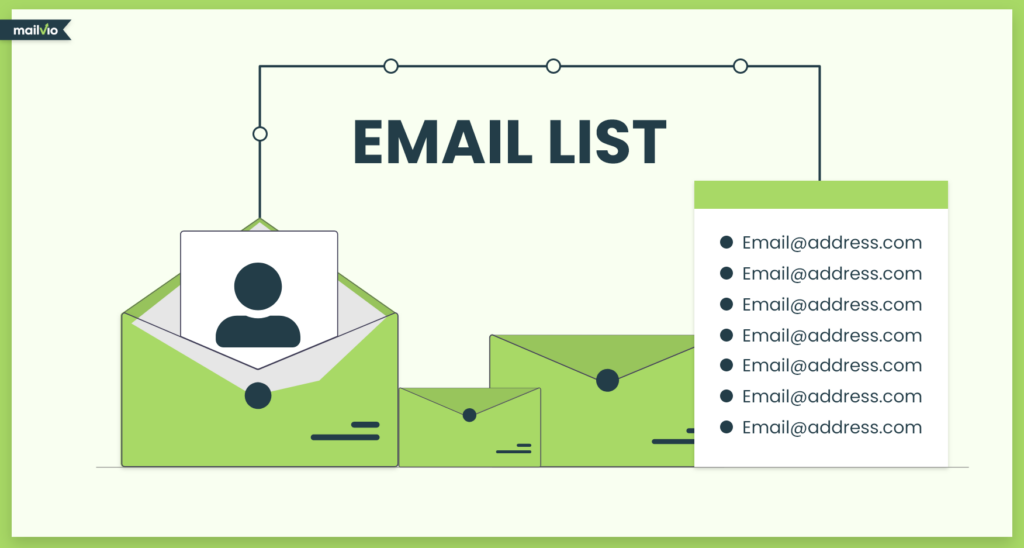Free Advice To Deciding On A Physical Therapists Email List
Free Advice To Deciding On A Physical Therapists Email List
Blog Article
What Are The Factors I Should Consider When Purchasing An Email List For A Cpa?
To make sure that your CPA (Certified Public Accountant) email list is legal in its relevance, quality and relevancy, it is essential to look at a few key factors. Consider: 1. Data Quality and Accuracy
Source of data: Check the sources of the lists. Reputable providers usually gather information from trustworthy sources like professional directories and trade associations. Avoid lists that are compiled with scraping and unreliable methods as they can contain inaccurate or outdated information.
Verification process: Check to see if the email list has been checked recently. This can help lower bounce rate and make sure you reach valid, active email addresses. Inquire how often the list is kept up-to-date and maintained, since CPAs often change their jobs or companies.
Segmentation/Filters CPA Lists should have filters and segmentation options. CPA List should have options to be segmented by geographical location (city or province and country), specificization (e.g. accounting or auditing, or financial planning), number of years in business, or size of the firm. These elements can be utilized to increase the impact of marketing campaigns, allowing more specific and targeted advertising.
2. Legal Regulations
Data Privacy Laws – Ensure your email list is compliant with data protection laws like the General Data Protection Regulation, the California Consumer Privacy Act or any other local laws. Lists must only contain legal emails.
Conformity with the CAN-SPAM Act. For U.S. emails campaigns, the list must comply with the CAN-SPAM Act. This law governs commercial electronic communication. It is essential to offer opt-out options, and avoid making use of misleading subject lines or content. Failure to comply with the law may result in fines and legal issues.
Opt-in Consent: Ensure that the email addresses have been obtained through consent to opt-in. The recipients must have consented to their permission to receive emails that are sent out by third-party marketing. This improves engagement and decreases complaints about spam.
3. Provider Reputation
Reputable Provider: Research the provider's reputation in depth. Check out customer testimonials, case studies and reviews to get a feel about what customers who have used the service previously experienced. Proven providers with an established track record are more likely than to provide reliable and accurate information.
Transparency: The company should be transparent about the way in which the data was collected and the frequency at which it is updated. It's a warning sign when a provider doesn't be able to clearly explain their methodology.
Support for your customers is essential You'll need an experienced and reliable customer service if your campaign requires help with list customisation and troubleshooting issues, or understanding the compliance rules. Support from a professional can save you time and money during the campaign.
4. Cost and ROI
Pricing Models: Different companies offer various pricing models--some charge per contact, others are a flat fee or a subscription. Compare costs with ROI and compare price to the quality.
Refund Policy: Discover if there is a policy to refund or replace items when a certain number of emails are incorrect or not valid. Guarantees give you confidence.
Price is not the same as. value: Don't only concentrate on the price. Lists that are less expensive may be attractive however they may have low bounce or engagement when they are of lower quality. Make sure you purchase lists that offer precision in data and segmentation.
5. Ownership and Usage of Data
Single-Use or Multiple-Use? Clarify whether you're buying the list only for one use or if the list is yours and you can make use of it in ongoing campaigns. While single-use mailing lists might cost less and you'll have more freedom with long-term campaigns if you have the list.
Shared Lists: Determine if the list is exclusive to you or shared with multiple buyers. Shared Lists: Identify if the email list is exclusive to you or shared with other buyers. Shared lists may lead to audience fatigue if the recipients have been bombarded with marketing emails from different businesses.
6. Data Integration and Format
CRM Compatibility: Ensure that the list is delivered in a format compatible with the CRM software or marketing email, like CSV or Excel. It makes it easy to import and managing your information.
Ease Of Use: Determine how easily the data can be separated and managed following integration into your system. Personalization and targeting can be more efficient with a well-organized lists.
7. Ethical aspects
Relevance of content CPAs are busy professionals. Therefore, it's important to send them relevant and valuable content. In the event that you send out spammy or irrelevant messages, it could harm your reputation and lead to more complaints.
Avoid sending too many email messages Limit the number times you email your contacts. Over-communication will lead to complaints about spam and unsubscribes. Additionally, it can negatively impact the sender’s reputation.
Conclusion
To ensure that your investment will be profitable, you should consider data quality and legal compliance when buying an email database from an CPA service. With the right segmentation, you to increase your engagement and ROI. Check out the top cpa email list for more info.
What Are The Things I Need To Consider Prior To Purchasing An Appending For Data?
Consideration of data appending service is vital. You should consider several factors in order to make sure that the appending service will enhance the quality and accuracy of your information while maintaining ethical, legal, and conformity standards. Data appending refers to the process of enriching your existing database with missing or extra information, such as telephone numbers, email addresses, and demographics. When buying data appending is, there are some important things to take into consideration: 1. Data Accuracy
Source of data Be sure that the appending provider has reliable and top-quality sources such as authentic databases or public records. You can also opt in directories. The most reliable service providers typically gather information from legitimate sources. They make sure that the information will be accurate and current.
Verification Process: Check if the provider has a thorough method of verifying and validating the data. This assures that the data is up-to-date, accurate and pertinent to your needs and that it is appropriate. Providers should provide regular data updates and cleansing processes as part of their service.
Match Rate - Different vendors have different match rates. They are the proportion of records that can be enriched by new data. Try to find a balance with high accuracy in data and high match rates.
Customization. Depending upon your needs it is important to make sure that the append tool is customizable. This may include adding different types or data, including firmographic data and demographics, and behavioral data.
2. Data Security and Privacy
Compliance with Regulations Data appending is the processing of personal data. Therefore, it is crucial that the appending service adheres to privacy laws, such as the General Data Protection Regulations (GDPR), California Consumer Privacy Acts (CCPA) and other privacy laws. Data appended needs to be processed and legally collected in order to avoid fines and harm to reputation.
Consent management: Ensure that the data you are collecting comes from people who have given their explicit consent to share their personal information. Do not use data sources that have suspect practices, or those that violate the privacy of the users. This can lead to ethical and legal issues.
Data Security: Ensure the service provider has strict security measures for data to safeguard the confidentiality and integrity of your existing database as well as the information that is added to it. Secure data transfers, encryption and access control are all a part of this.
3. Provider Reputation
Reputable Vendor: Choose one with a solid reputation for delivering accurate and compliant services for data appending. Look through reviews, testimonials, or case studies to assess their track record. A well-established company is more likely to provide top-quality services and will be able to ensure that they are in compliance with the law.
Industry-specific specialization: Some service providers have a focus on certain industries, for example healthcare, finance or retail. Look for vendors with expertise and experience in your specific market, if you operate located in this field. They may provide customized solutions that are more suited to your specific needs.
4. Cost and Return On Investment (ROI).
Pricing Models: Appending services for data provide a range of pricing models. They offer flat rates for bulk updates or per-record costs. Make sure you are aware of the pricing structure and the way it is aligned to your budget. Be wary of services that appear low in price, as it could suggest poor information.
Calculate the ROI potential that comes from incorporating information. A great service will increase engagement, conversion rates, and performance in marketing. Compare the cost against the anticipated benefits of having better, more relevant analytics.
5. Types of Data, Appending Options, and Other Options
You should think about the type of data to include in your database. The most common types are:
Email addresses are vital to email marketing campaigns.
Phone numbers are essential for outreach to sales or Customer Support.
Demographic data is helpful for segmentation and targeted marketing.
Data on firmographics is essential for B2B companies that want to reach out to businesses based on figures for employee numbers, revenue or industry.
Social Media Profiles - Some service providers allow you to add social media handles. These can assist in digital and social networking marketing efforts.
6. Data Integration and Format
Compatibility: Ensure that the data you add is delivered in a compatible format with the Customer Relationship Management (CRM) software Marketing Automation Software or other tools that you use. Standard formats include CSV, Excel, or API integration. These formats should allow for easy data import and use.
Data Cleaning and Enrichment Services: In addition to the appending process the best provider can also offer data cleansing services. This can include correcting errors or duplicates, as well as eliminating old records. Data enrichment doesn't just mean adding new data. It also enhances the overall quality of your database.
7. Ethical aspects
Transparency. Providers must be open and transparent regarding how they collect and use the data. Companies that append data to ethical guidelines will have guidelines on the sourcing of data as well as its use.
Impact on Engagement: Appending contact information such as phone numbers or emails should not cause users to engage in ad-hoc unwanted, intrusive or invasive practices. Make use of appended data in a responsible manner. Utilize the best practices to reach out to consumers, offer opt-out options, and ensure privacy for consumers.
You can also read our conclusion.
When you purchase data appending services, focus on data quality as well as legal compliance and provider reputation. Services that provide reliable, secure data and comply with privacy laws such as GDPR or CCPA ought to be given top priority. Additionally, you must make sure that the appended data will work with your current systems and evaluate the long-term ROI from investing in accurate, improved information. If you select the correct appending service and focusing your efforts on ethical practices to enhance the effectiveness of your marketing and also your business's performance. Check out the expert data appending services for blog tips.